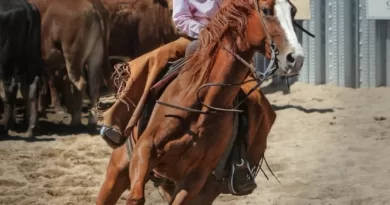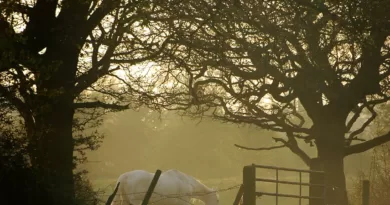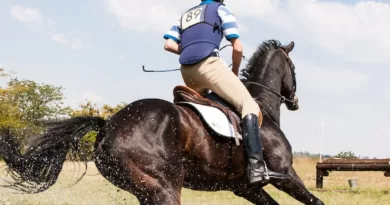Can Horses Eat Potatoes
Nutritional Needs of Horses: Understanding the Basics
Horses, like any other living creature, require a balanced diet to meet their nutritional needs. Understanding the basics of a horse’s nutritional requirements is crucial for maintaining their health and well-being. One key aspect to consider is the horse’s energy requirements. Horses are herbivores, and their diet primarily consists of forage, such as hay and pasture. The quantity of forage needed varies depending on the horse’s age, weight, and activity level. Providing enough good quality forage is essential for meeting their energy needs and ensuring proper digestive function.
In addition to energy, horses also require essential nutrients such as protein, vitamins, and minerals for optimal health. Protein plays a vital role in muscle development and repair, especially for actively working horses. Adequate protein levels can be achieved through a combination of forage and concentrated feed, specifically formulated for horses. When it comes to vitamins and minerals, each horse’s requirements may differ, but the essential ones include vitamin A, vitamin D, calcium, and phosphorus. Supplements may be necessary, especially if the horse’s diet lacks specific nutrients due to limited forage availability or poor pasture quality.
Understanding a horse’s nutritional needs goes beyond just providing the right quantity of feed. It also involves a proper feeding routine and maintaining a healthy weight. Horses should be fed small, frequent meals throughout the day, mimicking their natural grazing behavior. Overfeeding can lead to obesity and related health issues, while underfeeding can result in poor body condition and inadequate energy levels. Regular monitoring of a horse’s body condition score is essential to ensure they are receiving the right amount of feed. Adjustments to the diet should be made based on the horse’s individual needs and any changes in their activity level or overall health.
An Overview of Horse Digestive System
The horse digestive system is a complex and efficient mechanism that enables these animals to extract the necessary nutrients from their food. Unlike humans, horses are herbivores with a specialized digestive system designed for a diet of fiber-rich plant material. The digestive process begins in the horse’s mouth, where they use their strong teeth to grind and break down food into smaller particles.
Once the food is chewed, it travels to the horse’s stomach, where further breakdown occurs through the action of gastric acid. From there, the partially digested food moves into the small intestine, where the majority of nutrient absorption takes place. It is in this part of the digestive system that carbohydrates, proteins, fats, and vitamins are broken down and absorbed into the bloodstream.
The undigested residue then passes into the large intestine, where fermentation by bacteria and other microbes occurs. This fermentation process is crucial for horses as it allows them to break down fiber and extract additional nutrients. Finally, waste products are eliminated through the horse’s rectum as feces.
Understanding the basics of the horse digestive system is essential for providing appropriate nutrition and preventing digestive issues. Proper feeding practices, including a diet rich in fiber and limited in starch, along with regular access to fresh water, are vital for maintaining a healthy and well-functioning digestive system in horses.
Safe and Unsafe Foods for Horses: What to Consider
When it comes to feeding horses, it’s essential to be aware of what foods are safe and unsafe for them. Horses have a sensitive digestive system, and certain foods can cause digestive issues and pose health risks. While horses primarily rely on forage and grains as their main food sources, it’s important to consider the wider variety of foods that can be harmful to them.
Some foods that are safe for horses to consume include hay, pasture grass, oats, and carrots. These foods provide the necessary nutrients for horses and are easily digestible. On the other hand, there are several foods that should never be fed to horses. This includes toxic plants like yew, bracken fern, and ragwort, as well as foods that are harmful to their digestion, such as chocolate, caffeine, and alcohol. Additionally, fruits and vegetables like avocados and onions should be avoided as they can be toxic to horses. It’s crucial for horse owners to be knowledgeable about safe and unsafe foods to ensure the well-being and health of their equine companions.
The Impact of Potatoes on Horse Health
Potatoes, a staple in human diets, may seem like a harmless treat for horses. However, their impact on horse health should not be taken lightly. While horses are herbivores, their digestive systems are quite different from ours, making it important to understand the potential risks associated with feeding them potatoes.
One significant concern is the high starch content in potatoes. Horses are not designed to handle large amounts of starch, as their digestive system is adapted to process fibrous plant materials. Excessive starch intake can lead to issues such as colic and laminitis, both of which can be extremely painful and even life-threatening for horses. Additionally, potatoes have a low calcium-to-phosphorus ratio, which can disrupt the delicate balance of minerals in a horse’s diet. As a responsible horse owner, it is crucial to be aware of these potential risks and to explore alternative, healthier food options for our equine companions.
• Horses are herbivores, but their digestive systems are different from humans
• High starch content in potatoes can be harmful to horses
• Excessive starch intake can lead to colic and laminitis
• Potatoes have a low calcium-to-phosphorus ratio, which can disrupt mineral balance in a horse’s diet
• Responsible horse owners should consider alternative, healthier food options for their horses
Potential Risks Associated with Feeding Potatoes to Horses
Feeding potatoes to horses can pose potential risks to their health. One of the main concerns is the high starch content found in potatoes. Horses have a limited capacity to digest starch due to their unique digestive system, which is primarily designed for processing fiber. When horses consume large amounts of starch, it can lead to an overload in their small intestine, potentially causing digestive upset, colic, and even laminitis.
Another risk associated with feeding potatoes to horses is the potential toxicity from solanine. Solanine is a natural toxic compound found in the green parts of potatoes, such as the leaves and stems. While potatoes themselves may not contain high levels of solanine, any green or sprouted parts should be avoided as they can be toxic to horses. Ingesting solanine can lead to symptoms such as gastrointestinal upset, weakness, trembling, and even paralysis in severe cases. It is important to carefully inspect the potatoes before feeding them to horses and remove any green parts to minimize the risk of solanine toxicity.
Common Symptoms and Signs of Digestive Issues in Horses
Common Symptoms and Signs of Digestive Issues in Horses:
Horses, just like any other living creature, can experience digestive issues from time to time. It is crucial for horse owners and caretakers to be aware of the common symptoms and signs that may indicate a problem. One common sign of digestive issues in horses is a sudden change in appetite. If a horse is consistently refusing to eat or is eating significantly less than usual, it could be a red flag. Additionally, frequent bouts of colic, which is characterized by abdominal discomfort, can also be indicative of digestive issues. Owners should watch out for signs such as pawing at the ground, rolling excessively, or exhibiting signs of discomfort.
Another sign to observe is changes in bowel movements or digestion. Horses with digestive issues may display loose or watery stools, or in some cases, develop bouts of diarrhea. On the other hand, constipation or straining to defecate can also be a clear indication that something is not functioning properly within the digestive system. Moreover, bloating or distention of the abdomen is another sign to be cautious of. If a horse’s abdomen appears swollen or feels tight to the touch, it could be an indication of gas buildup or an obstruction in the digestive tract. These symptoms should not be overlooked, as they can signify more serious underlying issues that require immediate attention.
Proper Feeding Practices for Equine Health and Well-being
It is crucial to implement proper feeding practices to ensure the health and well-being of horses. One essential aspect is providing a balanced diet that meets their nutritional needs. Horses require a diet that includes essential nutrients such as proteins, carbohydrates, fats, vitamins, and minerals. These nutrients play a vital role in maintaining their overall health and supporting proper bodily functions.
Another important feeding practice is to offer horses adequate amounts of clean and fresh water. Water is essential for digestion, nutrient absorption, and overall hydration. Horses typically consume around 5 to 10 gallons of water per day, depending on their size and activity level. Providing clean water at all times is crucial to prevent dehydration, especially during hot weather or intense exercise. Additionally, it is essential to regularly clean water troughs and buckets to ensure cleanliness and prevent the growth of bacteria or algae.
Alternatives to Potatoes: Healthy Food Options for Horses
When choosing healthy food options for horses, it is important to consider alternatives to potatoes. While potatoes can provide some nutritional value, they are high in starch and should be fed in moderation. Thankfully, there are plenty of other options available that can help meet your horse’s dietary needs.
One such alternative is carrots. Carrots are a popular choice among horse owners due to their high vitamin A content, which promotes healthy eyesight and a strong immune system. Additionally, carrots are low in sugar and can be a valuable source of fiber for horses. They can be fed both raw or cooked, making them a versatile option for a horse’s diet.
Consulting a Veterinarian: When in Doubt
It is crucial to consult a veterinarian when you have doubts or concerns about your horse’s diet. A veterinarian is a trained professional who can provide expert advice based on their knowledge and experience. They can help assess your horse’s overall health, nutritional needs, and suggest appropriate dietary modifications if necessary. A veterinarian’s guidance can help ensure that you are providing the best nutrition for your horse, enabling them to thrive and maintain good health.
When seeking guidance from a veterinarian, it is important to be prepared with specific questions or concerns. Write down any observations or symptoms related to your horse’s digestion or overall health, as this will help the vet make an accurate assessment. Be open and honest about your horse’s diet, including any new foods or supplements you have added. By providing accurate information, the veterinarian will be able to provide tailored advice and recommendations that are suited to your horse’s individual needs. Remember, a veterinarian is an invaluable resource when it comes to understanding your horse’s nutritional requirements, so do not hesitate to seek their professional input.
Conclusion: Making Informed Decisions for Your Horse’s Diet
In conclusion, when it comes to making informed decisions for your horse’s diet, it is crucial to consider their nutritional needs and the impact different foods can have on their health. Understanding the basics of horse nutrition and the functioning of their digestive system allows you to make educated choices about what to feed them.
It is important to be aware of the potential risks associated with certain foods, such as potatoes, which can have adverse effects on your horse’s wellbeing. Recognizing the common symptoms and signs of digestive issues in horses will help you identify any problems early on and take appropriate action. By following proper feeding practices and considering healthy alternatives to potentially harmful foods, you can ensure your horse receives a balanced and nourishing diet. Remember, if ever in doubt, consulting a veterinarian is always advisable to ensure the best care for your horse’s dietary needs.
What are the nutritional needs of horses?
Horses require a balanced diet that includes essential nutrients such as protein, carbohydrates, fats, vitamins, and minerals.
How does the horse’s digestive system work?
The horse’s digestive system is designed for grazing and requires a constant intake of fibrous material to maintain optimal function. It includes the mouth, esophagus, stomach, small intestine, large intestine, and cecum.
What foods are safe for horses to eat?
Horses can safely consume a variety of foods, including grass, hay, oats, and commercial horse feeds formulated specifically for their nutritional needs.
Can horses eat potatoes?
While horses can eat small amounts of cooked potatoes as a treat, feeding them large quantities or raw potatoes can pose potential health risks.
What are the risks associated with feeding potatoes to horses?
Feeding raw or large amounts of potatoes to horses can lead to digestive issues, such as colic or gastric ulcers. It can also disrupt the balance of nutrients in their diet.
What are common symptoms of digestive issues in horses?
Common signs of digestive issues in horses may include changes in appetite, weight loss, diarrhea, excessive gas, or abdominal discomfort.
How can I ensure proper feeding practices for my horse’s health and well-being?
It is important to provide a balanced diet that meets your horse’s nutritional needs, feed them at regular intervals, and ensure access to fresh water and adequate exercise.
What are some healthy alternatives to feeding potatoes to horses?
Healthy food options for horses include hay, grass, grains (such as oats), and specially formulated horse feeds that meet their nutritional requirements.
Should I consult a veterinarian about my horse’s diet?
Yes, it is always advisable to consult a veterinarian when in doubt about your horse’s diet. They can provide professional guidance based on your horse’s specific needs and health conditions.
How can I make informed decisions about my horse’s diet?
To make informed decisions, educate yourself about the nutritional needs of horses, understand their digestive system, research safe and unsafe foods, consult with experts, and closely observe your horse’s health and behavior.




